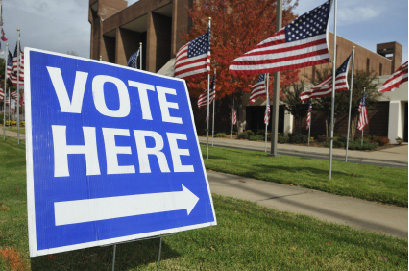The organization that represents the state’s elected county elections supervisors is recommending they hold off on removing anyone from the state’s voter rolls in light of new concerns raised by the federal Department of Justice.
The DOJ notified the state Division of Elections and Secretary of State Ken Detzner this week that it is concerned that the state’s effort to cull illegal voters from the rolls may run afoul of a federal law that requires states to finish removing ineligible voters 90 days before an election. Florida is inside that window, with the primary scheduled for Aug. 14.
DOJ didn’t immediately order the state to stop removing voters, but along with the warning that Florida could be violating the law, demanded to know whether the state plans to continue the purge. The state’s effort is intended to remove non-citizens from the rolls, something state officials said was possible by matching voter registration lists with a driver’s license database that flags possible non-citizens. Critics have said the list is inaccurate and could lead to legal voters being purged.
On Friday, Ron Labasky, the legal counsel for the Florida State Association of Supervisors of Elections, sent elections supervisors around the state a memo suggesting they stop using the state list to remove people from voter rolls, at least for now.
“It suggested to them that … in light of the fact that the Department of Justice has some concerns about the 90-day window to remove voters that the supervisors just stop doing anything,” Labasky told the News Service of Florida.
Labasky’s advice is as the supervisors’ lawyer and he said the group hadn’t taken any formal decision on how to respond, meaning it remains up to individual supervisors to determine what to do with the information provided by the state in its efforts to remove voters.
State Division of Elections spokesman Chris Cate reiterated Friday that removing ineligible voters from the rolls is something the agency is committed to. But he noted the supervisors are ultimately the ones who will make the call.
“If supervisors have reliable information that someone is an ineligible voter, that voter needs to be removed from the voter rolls,” Cate said. “But the process is very important to us, and the supervisors have the responsibility of making the ultimate determination of ineligibility and removing ineligible voters.”
The question over the 90-day issue arises because the law doesn’t completely clearly define what is covered by the 90-day requirement. The law spells out that systematic voter removals should stop, but those typically include the removal of people believed to be felons, dead, or incapacitated – it’s not clear whether the law intended to include “special” efforts to purge clearly ineligible voters, such as those who are non-citizens.
Labasky also said that the state was trying to improve its list anyway – with state officials having advised local supervisors earlier this week that it was planning to go back over the list of more than 2,500 people it has identified as potentially ineligible to further vet them before recommending that supervisors consider them for purging.
That also was a factor in recommending that elections supervisors hold off on any new purges, he said.
Also this week Detzner’s office sought to get the U.S. Department of Homeland Security’s help in improving the list. State officials want to cross-check the list that has been called into question with one from the Homeland Security agency that is thought to be more accurate.
By David Royse



